
[ad_1]
Harvard Chan School symposium, a part of Harvard Climate Action Week, affords instruments, concepts from a worldwide perspective
May 10, 2023 – The wide-ranging well being impacts of climate change, together with food insecurity, migration, war, and the unfold of infectious diseases—and sensible options to deal with these issues—had been the main focus of a half-day symposium hosted by Harvard T.H. Chan School of Public Health.
The May 8 occasion, titled Climate, Health & Equity: Toward a Sustainable Future, was a part of the inaugural Harvard Climate Action Week, sponsored by the brand new Salata Institute for Climate and Sustainability.
Speakers on the symposium, held at Harvard Business School’s Spangler Center, included group activists, state and federal directors, and scientists.
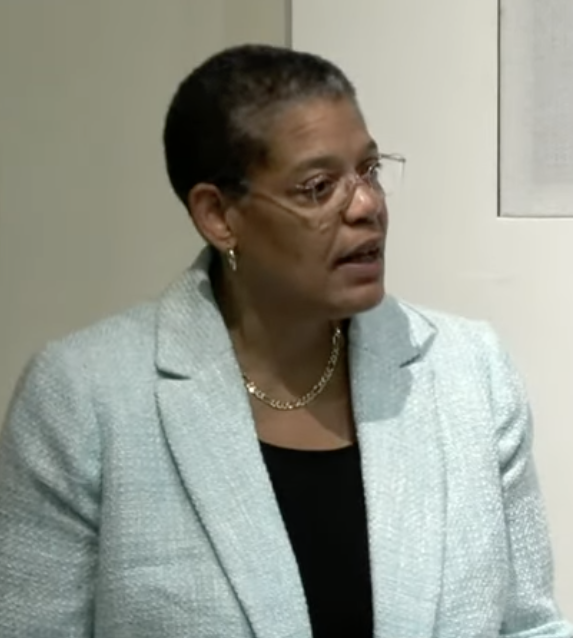
“Climate change is not a distant abstract concept or threat,” stated Harvard Chan School Dean Michelle Williams in opening remarks. “Climate change is harming our health, right here and right now. Climate change is deepening inequities, right here and right now. And we all know that we have the tools to tackle climate change, right here and right now.”
The symposium featured a quick video highlighting Harvard Chan School’s decades-long legacy of tackling the well being impacts of local weather change, such the landmark Six Cities Study, which led to a tightening of U.S. air pollution requirements within the Nineties, and the founding of the Center for Climate, Health, and the Global Environment (Harvard Chan C-CHANGE) in 2018.
On the local weather change entrance traces
Kari Nadeau, John Rock Professor of Climate and Population Studies and chair of the Department of Environmental Health, moderated the occasion, which featured a number of panels. The first featured three group activists: Carolina Reyes, a group well being care employee from Springfield, Mass.; Shweta Narayan, a worldwide local weather campaigner with the worldwide nongovernmental group Health Care Without Harm; and Passy Amayo Ogolla, program supervisor for the nonprofit Society for International Development.
Narayan, who lives in a small village in southern India, stated she has seen temperature and rainfall adjustments have an effect on native agriculture and illness unfold. Reyes spoke about growing charges of allergy symptoms and asthma in Springfield. And Ogolla described droughts in her group, and elsewhere in Africa, which have led to meals insecurity, malnutrition, and folks dying from starvation. “The challenges are dire, not just affecting health, but the entire livelihood of the community,” she stated.
On a private stage, Ogolla has taken motion to enhance the scenario by planting a fruit tree forest in her group to supply each shade and wholesome meals—and he or she has inspired others to plant extra bushes as nicely. Reyes has labored to teach docs, non secular leaders, and households about local weather change’s well being impacts and the significance of preserving the setting protected and wholesome for all. “We’re in 2023 and we’re still using gasoline,” she stated. “Why are we still using harmful nail polish? Plastic bottles? We have to make it personal and make the government take it personally too.”
Governments have to be accountable for setting insurance policies geared toward limiting local weather change, the activists agreed. Said Ogolla, “I strongly believe that prevention is better than cure. I would strongly call upon policymakers to look into their climate and sustainable energy policies and strategize toward implementing these now so that future generations can have a planet to look forward to. And not just any type of planet—a planet where people are healthy and living sustainably.”
Documenting meals insecurity
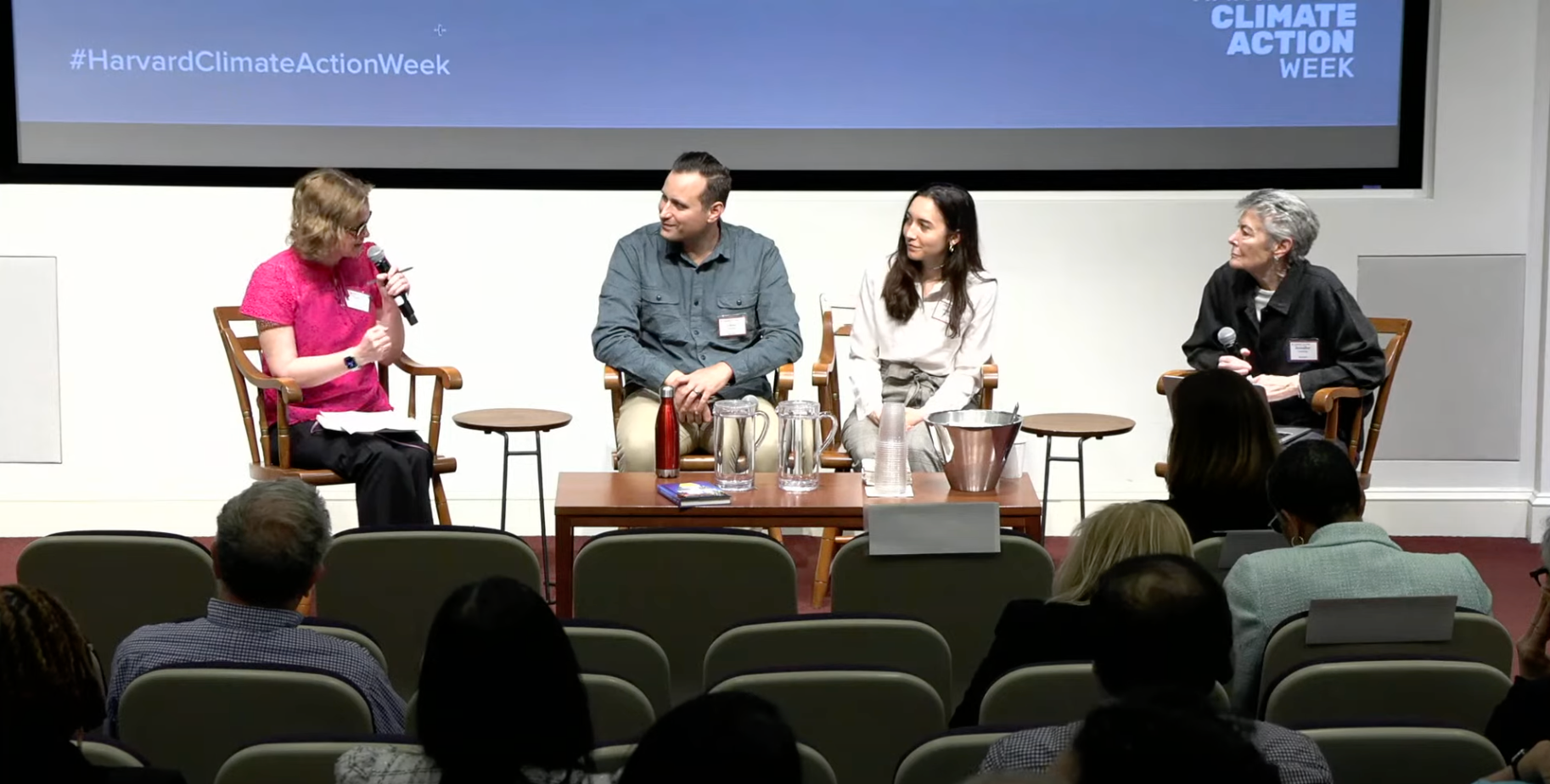
Louise Ivers, director of the Harvard Global Health Institute and professor of world well being and social medication at Harvard Medical School, moderated a panel on meals insecurity, noting that it impacts 1 / 4 of a billion folks worldwide. Panelists included Harvard Chan School’s Chris Golden, Abrania Marrero, and Jennifer Leaning.
Golden, assistant professor of diet and planetary well being, spoke about his analysis on how local weather change destabilizes meals methods. Much of his work has targeted on Madagascar, the place he has assessed how impacts resembling sea temperature rise and ocean acidification can result in coral bleaching, threatening the flexibility of fisheries to breed and to supply seafood for Indigenous cultures and others dwelling within the world South. As for options, Golden prompt utilizing environmental knowledge to create an early-warning system for communities and international locations to foretell the place well being impacts would possibly happen. He additionally described his work creating synthetic reefs in Madagascar to assist rehabilitate fish shares.
Marrero, a postdoctoral analysis fellow, mentioned her research of diet, small-scale farming, and local weather resilience of island nations, notably in Puerto Rico. She famous that though Puerto Ricans historically grew their very own meals, the scenario modified lately to the purpose the place, at this time, 85%-95% of the meals within the nation is imported—a lot of it extremely processed and unhealthy. “This radically affects the health of people, of local economies, of livelihoods, of ecosystems,” Marrero stated. Research she’s labored on has proven that individuals who eat domestically produced meals have higher dietary standing. She additionally famous that there’s a lot to be discovered from small-scale meals producers about wholesome land stewardship, which might each bolster livelihoods and scale back meals insecurity. Studying how small producers function “can really help us think about what are the practices that we can learn from on a larger scale,” she stated.
Leaning, senior analysis fellow on the François-Xavier Bagnoud (FXB) Center for Health & Human Rights, talked about how local weather change-driven drought led to migration and battle in Syria, fueling that nation’s ongoing civil conflict. She additionally mentioned the issue of harmful heat in India, noting that the federal government there’s working to type warmth motion plans so that individuals have ample shelter and water throughout life-threatening heatwaves.
A concentrate on coverage
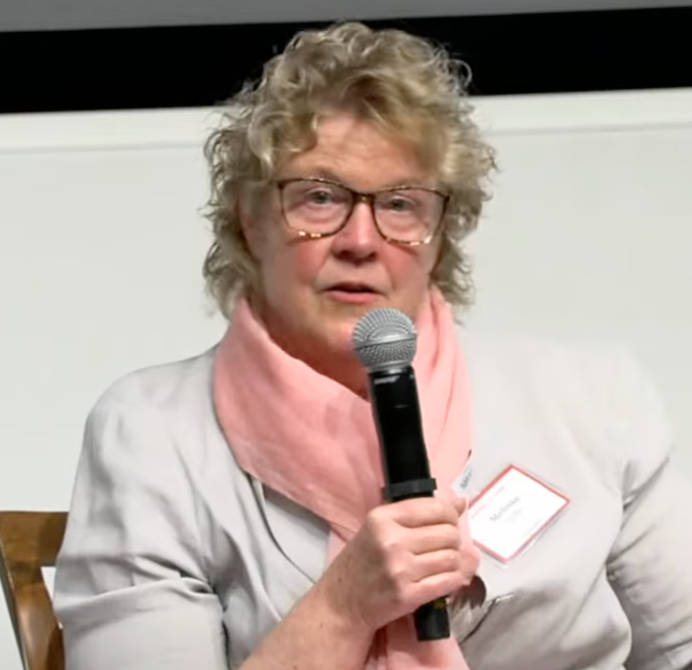
State and federal actions to mitigate the well being impacts of local weather change had been the main focus of two panels. One featured Melissa Hoffer, who was appointed Massachusetts’s first-ever Climate Chief earlier this 12 months. Having a state local weather chief is essential to make sure that local weather concerns are “in the bones” of all the opposite state companies, Hoffer stated. She has been engaged on quite a lot of fronts, resembling growing the usage of electrical autos and selling environmental justice.
“We know what we need to do,” stated Hoffer. “We have to stop using dirty fossil fuels. We need to stop investing in all the institutions that support the development and production of these fuels. We have to start baking in a social cost of carbon.”
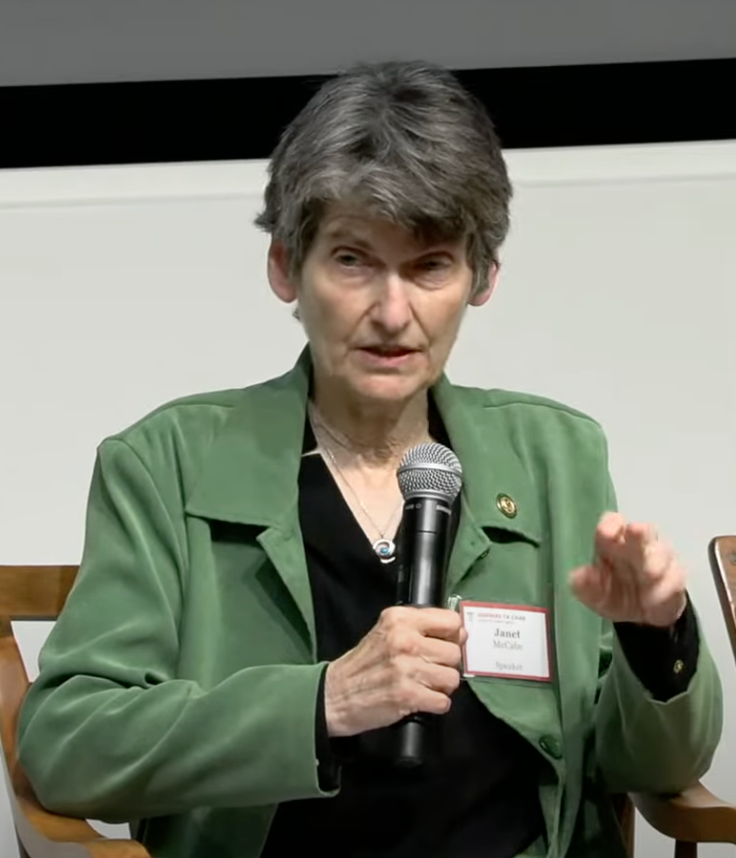
Janet McCabe, deputy administrator of the Environmental Protection Agency, spoke with Harvard Chan School’s Tamarra James-Todd, Mark and Catherine Winkler Associate Professor of Environmental Reproductive Epidemiology, about federal insurance policies geared toward reining in local weather change. “This is an incredible time at the EPA,” stated McCabe, citing a brand new federal rule that may massively reduce air pollutants from heavy-duty trucks, a proposed rule that may institute the toughest-ever emissions caps on all cars and trucks, and an upcoming proposal on limiting fossil fuel-fired power plant emissions. These guidelines, along with guidelines being put in place by different federal companies, put the nation heading in the right direction to fulfill President Biden’s dedication to scale back carbon emissions by roughly 50% by 2030, stated McCabe.
Climate change and infectious illnesses
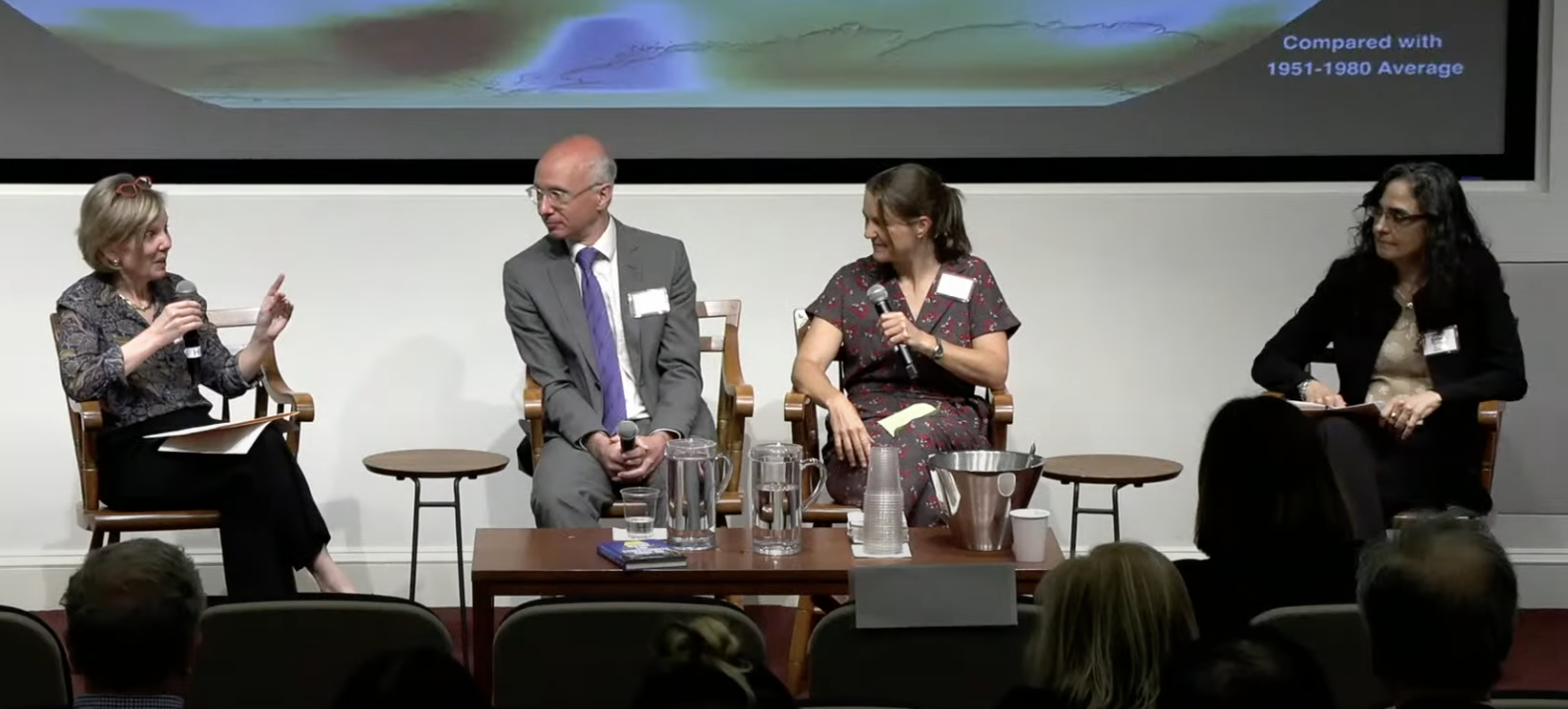
Increases in malaria and diarrheal illnesses, even one other pandemic—such are the infectious illness threats posed by local weather change, in accordance with three consultants from Harvard Chan School who spoke throughout a remaining panel.
Aaron Bernstein, C-CHANGE interim director and soon-to-be director of the Centers for Disease Control and Prevention’s National Center for Environmental Health and the Agency for Toxic Substances and Disease Registry, stated that as temperatures enhance, bugs transfer—together with the illnesses they carry. For instance, he stated, tick-driven Lyme illness is now displaying up in Canada for the primary time, and avian malaria, transmitted by mosquitoes, is impacting birds at increased altitudes than ever within the mountains of Hawaii. Marcia Castro, Andelot Professor of Demography, famous that deforestation in Brazil places folks in nearer contact with wildlife, elevating the dangers of zoonoses—illnesses that leap from animals to people. And Caroline Buckee, professor of epidemiology, talked about how excessive climate occasions lead poor folks dwelling off the land to change into “climate refugees,” transferring to cities to search out work. “If you were going to design a perfect situation for a global pandemic, you put them in crowded places and connect them by global travel,” she stated. “That’s exactly what we have.”
The researchers burdened the significance of gathering ample knowledge to doc climate-driven impacts on the unfold of illness, and for governments to control these impacts. Buckee added that it’s key for researchers within the world North to study classes from companions within the world South, who’ve expertise in dealing with excessive warmth and pure disasters. Bangladesh, for instance, does an amazing job of responding to cyclones as a result of they hit the nation usually. Creating significant educational partnerships in international locations like Bangladesh might assist in growing methods for the longer term, she stated.
Climate resiliency
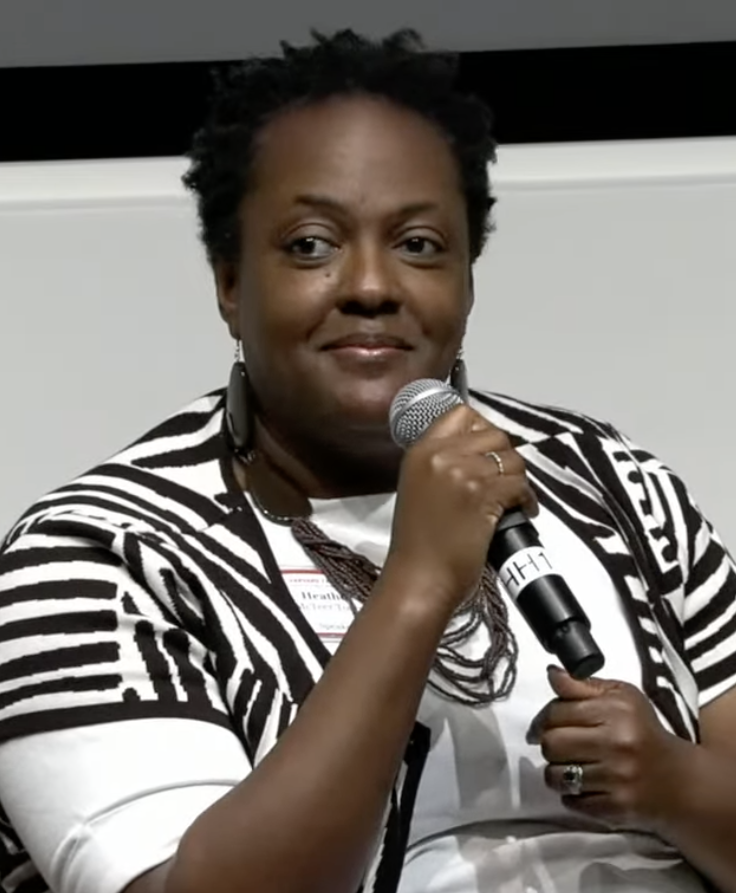
Keynote speaker for the symposium was environmentalist and civil servant Heather McTeer Toney, who beforehand served as the primary girl, the primary African American, and the youngest-ever mayor of Greenville, Mississippi, the place she fought to wash up the group’s faucet water. She went on to function regional administrator for the EPA’s Southeast area and as a pacesetter within the Mom’s Clean Air Force. Currently she is vp for group engagement for the Environmental Defense Fund and government director of Beyond Petrochemicals, a marketing campaign launched by Michael Bloomberg to cease enlargement of petrochemical and plastic air pollution within the U.S.
Communities dealing with environmental injustice throughout the U.S. have been resilient within the face of local weather change results “because it’s what we have to do,” Toney stated. In addition to coping with polluted air, water, and land, these communities additionally face a bunch of different points, resembling unfair healthcare and training methods, police brutality, meals disparities, and failing infrastructure. Efforts to deal with the well being impacts of local weather change, she stated, should take all of those elements into consideration. “We have to connect the dots,” she stated.
Feature picture courtesy Salata Institute for Climate and Sustainability
[adinserter block=”4″]
[ad_2]
Source link